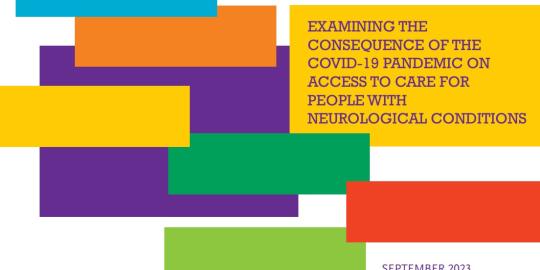
The Neurological Alliance of Ireland, the national umbrella for over thirty neurological charities, commissioned research between August 2022 and February 2023 involving people with neurological conditions and family carers, service providers and health professionals.
The report, published today, highlights that patients access to neurology and neurorehabilitation services still had not returned to pre COVID levels in late 2022 when the research was carried out.
The NAI has repeatedly warned since the start of the pandemic that services for the over 800,000 Irish people living with neurological conditions were likely to be seriously impacted by a combination of service disruption during lockdown coupled with significant underinvestment pre pandemic to address the backlog.
A national audit of neurology services published by the NAI in March 2021 showed that staffing levels across the country continued to remain well below those recommended by international standards.
Today's report "Impact of the COVID-19 Pandemic on Access to Care for People with Neurological Conditions in Ireland" found that patients and family carers had significant concerns about access to services into 2023, approaching four years on from the pandemic. A group of respondents self identifying as long COVID patients reported serious challenges in accessing supports for the neurological consequences of long COVID.
In launching the report today, the NAI is calling for investment in the upcoming Budget to tackle the deficits in neurological care highlighted in the report findings.
NAI is calling for funding in this year's Budget to expand the only dedicated neurology service for long COVID patients in St James Hospital. NAI is also calling for funding to tackle the dearth of neurorehabilitation services in the community highlighted in the report. No community neurorehabilitation team has been funded to date in three CHO areas in the South East, Midlands and North Dublin despite being promised in 2019 while teams in the Mid West and North West remain significantly understaffed to cope with local needs.